How Much Has the WNBA Draft’s Impacted Fashion Designers?

With a record-breaking 2.45 million viewers, last week’s WNBA Draft delivered global recognition for the professional league’s leading players.
Breakout stars like Caitlin Clark, Angel Reese, Nika Mühl, Kamilla Cardoso and Paige Bueckers were toasted as much for their red carpet choices as their on-court agility. A few of the designers who dressed them have seen less of a boost to their respective businesses. While the Indiana Fever-bound Clark raked in gobs of publicity for Prada by wearing a midriff-baring suit from the European house, and the Chicago Sky’s top recruit Reese stoked brand awareness for the on-the-rise Bronx and Banco by choosing a sparkly hooded dress, Mühl and Cardoso opted for lesser-known names. The Harlem-based Domo Wilkins suited up Mühl in a cropped black bolero and long skirt and tailored Bueckers’ Louis Vuitton suit. Cardoso also went with an under-the-radar talent: the Lexington, S.C.-based Minh Le.
More from WWD
Wonyoung, Minnie, Momo: Understanding Miu Miu's Soaring Popularity in Asia
The Scenario May Be Different, but Prada Group Continues to Grow
Having not been name-checked in the post-draft media blitz, Wilkins’ and Le’s lives are status quo for the time being, proving once again that tangential fame doesn’t necessarily equate to automatic financial gains. He still moonlights four days a week doing alterations in a Harlem laundromat and she continues to offer locals her top-shelf skills at a more affordable price.
Bronx and Banco’s founder Natalie De’Banco said that more than anything, the interest in the WNBA Draft signaled “such a change for the industry” and a fresh event to focus on. “Last year was all about Beyoncé, the Oscars and fashion influencers,” she said. “I’m very inspired by athletes, especially women athletes. We all follow men’s sports, of course. But 18.9 million people watched the women’s NCAA basketball final game versus 14.8 million for the men’s. And million watched the WNBA Draft. It’s exciting so many people supported strong women and wanted to see what they were wearing,” she said.
Seeing how Reese, a “stunning” athlete and recent college grad “looks so beautiful” was inspirational to De’Banco and other women, she said. Somewhat surprised by how much coverage dressing Reese generated especially from fashion outlets, she said, “That wasn’t about PR. It was more about supporting Angela in her career.”
It is too soon to say whether the media attention will translate to investor opportunities, new retail accounts or an uptick in online sales. But De’Banco said the draft demonstrated how things are changing in the industry, and how her customers have interests beyond fashion. “She wants to be strong, sporty and healthy. I just love that it’s all connecting now. Three or four years ago sports and fashion were so far apart.”
Seeing Reese in Bronx and Banco, she said, “Angel looked so beautiful in the dress, and she is not a typical fashion model. She is a stunning athlete, who just graduated from college. To me, health is wealth.” Started in Sydney 16 years ago, the company is now run from a New York showroom near Khaite and Prada in SoHo.
Despite the blast of media coverage that was showered on the elite competitors and select designers, Le’s name had not been referenced in any WNBA Draft articles. During an interview Wednseday morning, the 51-year-old self-taught designer described her only-in-America story. Born in Vietnam, she and her father and sister relocated to Boston in 1994 and became a U.S. citizen in 2000. Her father, who had been imprisoned after the fall of Saigon in 1975 for having served on behalf of the American forces during the Vietnam War, now has Alzheimer-type symptoms, she said. “My mother still lives in Vietnam. We never had a relationship. She left me, when I was a kid.”
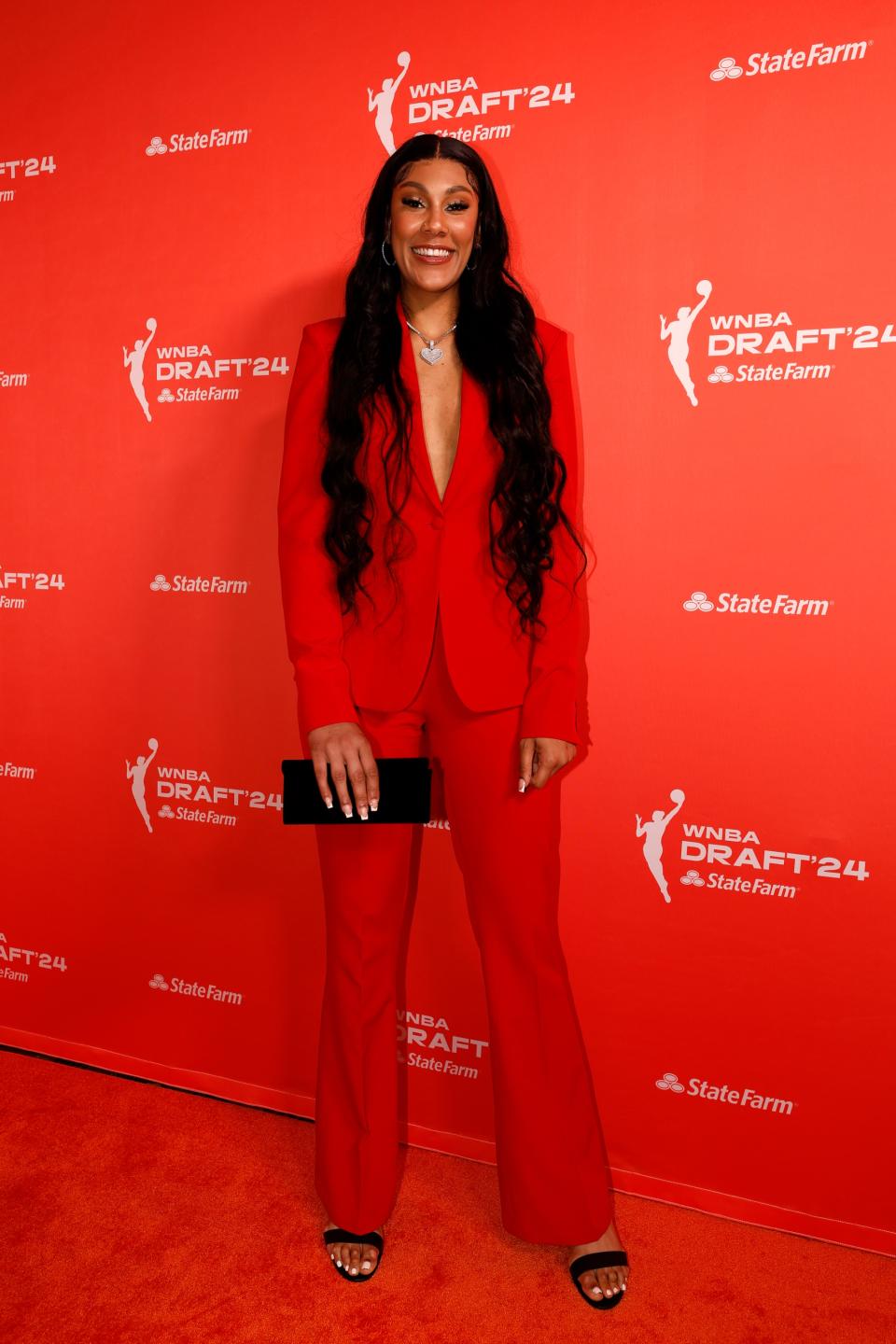
Prior to starting her own company, Le lived in Connecticut for a decade, where she opened and ran three nail salons. Another one was added in South Carolina. She later retreated to Lexington, S.C.’s balmy climate that reminded her of Vietnam and was ideal for her two children’s competitive swimming pursuits. That location had a backroom where she could sew — her favorite form of relaxation. After selling the nail salons, the designer opened her 831 Minhle shop since there was a void for handwork and tailoring in the community. “Everyone is sending that type of work out of the country. I wanted to share my skills and to let people know that I do think locally and make real women feel really good about themselves,” she said.
Allowing that people “in my hometown here are not going to have $2,000 for a couture custom suit,” she said they are given the same services. Each month she sells about 20 suits to locals for $750 to $850 apiece.
Three years ago she first made custom suits for the then University of South Carolina basketball player A’ja Wilson, the 6’4” forward whom she continues to work with. Le has designed a suit and a formal gown for Wilson to wear to this week’s Time 100 Most Influentional People events in New York. “This is the American dream. I came here with nothing. I worked really hard and I had my dream,” she said. “I taught myself how to sew and speak English. People can have dreams and work hard to get there.”
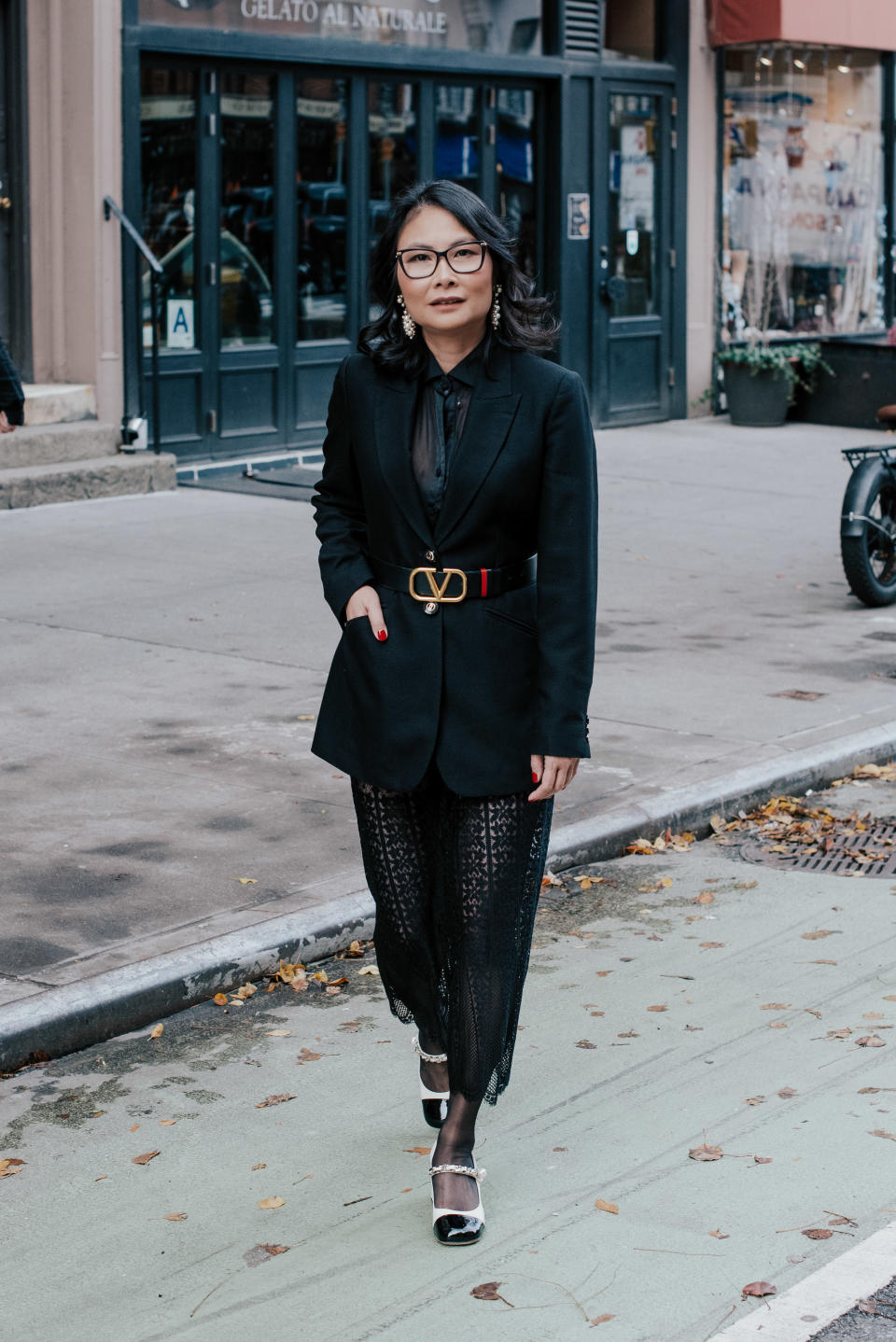
Le’s grasp for fit is so sharp that she often designs for other players whom she has never seen in person including NBA ones like the Miami Heat’s Bam Adebayo. Of course, clients routinely send measurements, “but they are never right,” said Le, who just carries on. “I just go online and find some videos of them playing and study their bodies. Then I will come up with the measurements from that,” she said. “Athletes’ bodies are different. They’re tall. Their shoulders are wider. They’re muscularly solid from working out a lot. I have to accentuate how to make them look feminine.”
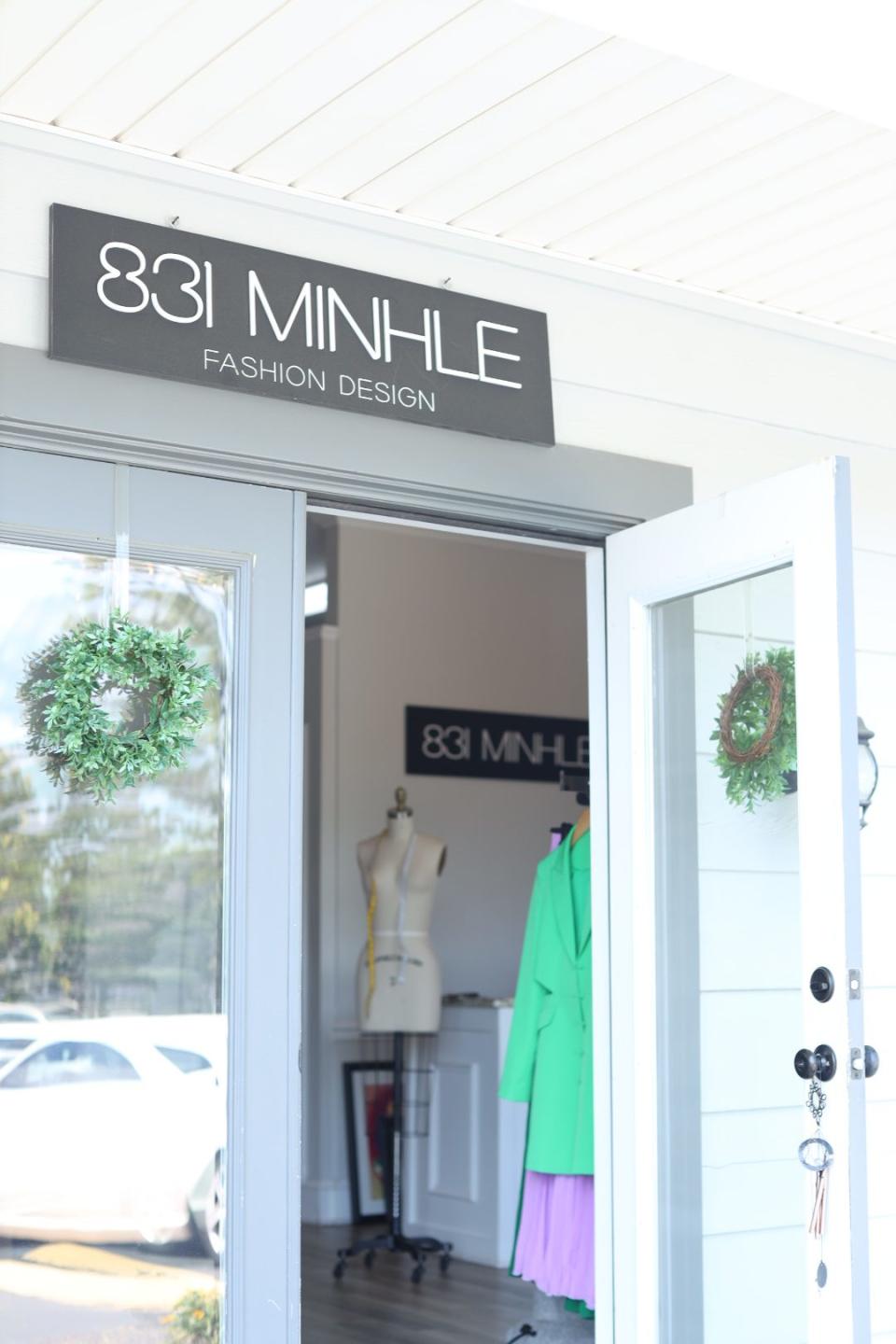
Le is also adept at creating items for Cardoso’s 6-foot, 7-inch frame, whose pant legs stretch 53 inches. Despite dressing high-profile players, the designer said she is well-known locally but no further. Without any investors, she has been unable to afford advertising and other initiatives. “I love my work, but I don’t know how to market myself. I have a PR [person] in New York but somehow it doesn’t work well yet. Getting in fashion magazines is really tough, because it’s so competitive,” Le said. “I want people to know that even a small business owner in a small town like me can do the best work. Every person deserves to look their best and to feel like they’re a celebrity.”
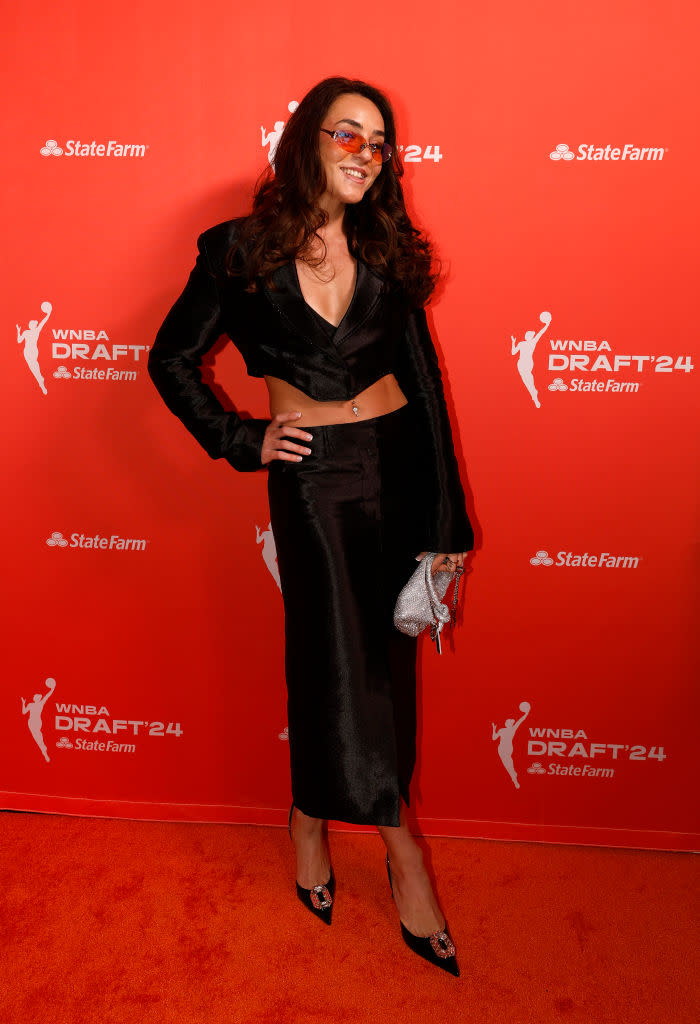
The Harlem-based Wilkins had a pre-draft fashion emergency, having to run out to Pacific Trimming to replace a button that had accidentaly popped off Bueckers’ Louis Vuitton ensemble. He launched Faded NYC, a unisex line 12 years ago and has been designing custom pieces throughout that time.
Most clients and stylists connect with Wilkins via Instagram, as was the case recently with the musician Erykah Badu, who reach out directly to him with a video. All in all though, the recent media attention has amounted to “a bunch of likes on Instagram, comments and maybe a few more opportunities from other followers,” he said. “It’s hard because some designers don’t get the recognition that they deserve. Another issue is that sometimes the stylists like to take more of the shine. Honestly, they just pick out the outfit. If it doesn’t fit they can’t fix it — we fix it.”
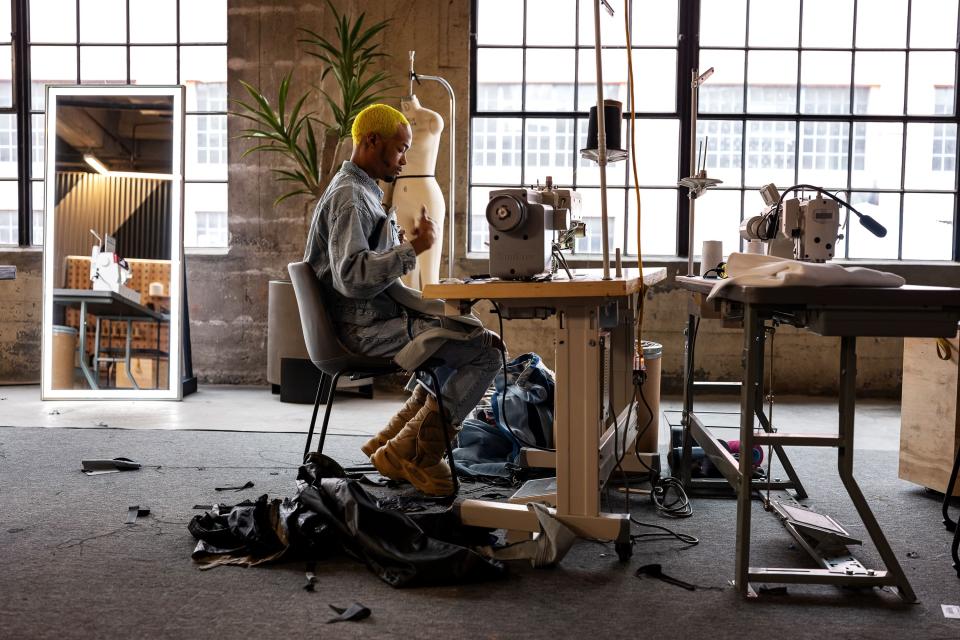
Measurements can also be tricky. After requesting measurements for a celebrity, Wilkins said someone else was tasked with taking them, despite the fact that he was the person designing the outfit. “It’s weird and awkward. I don’t know what their agenda is.”
The Faded NYC business is “kind of slow” right now for Wilkins, an Art Institute of New York City graduate, who compensates that with a good amount of custom orders and does alterations at United Laundré, a local laundromat, four times a week.
While he was paid for the WNBA Draft work that he did for stylist Brittany Hampton within days, slow payment for VIP designs is a recurring issue with some stylists, who can take weeks or months to pay, Wilkins said.
“It depends on the stylist or maybe their budget. Right now I’m still waiting to be paid for a job that I did in February. I feel like it should be the next day or when the job is done. I shouldn’t be waiting for weeks, because the stylist is constantly working with the artist. Why do I have to wait?”
Best of WWD
